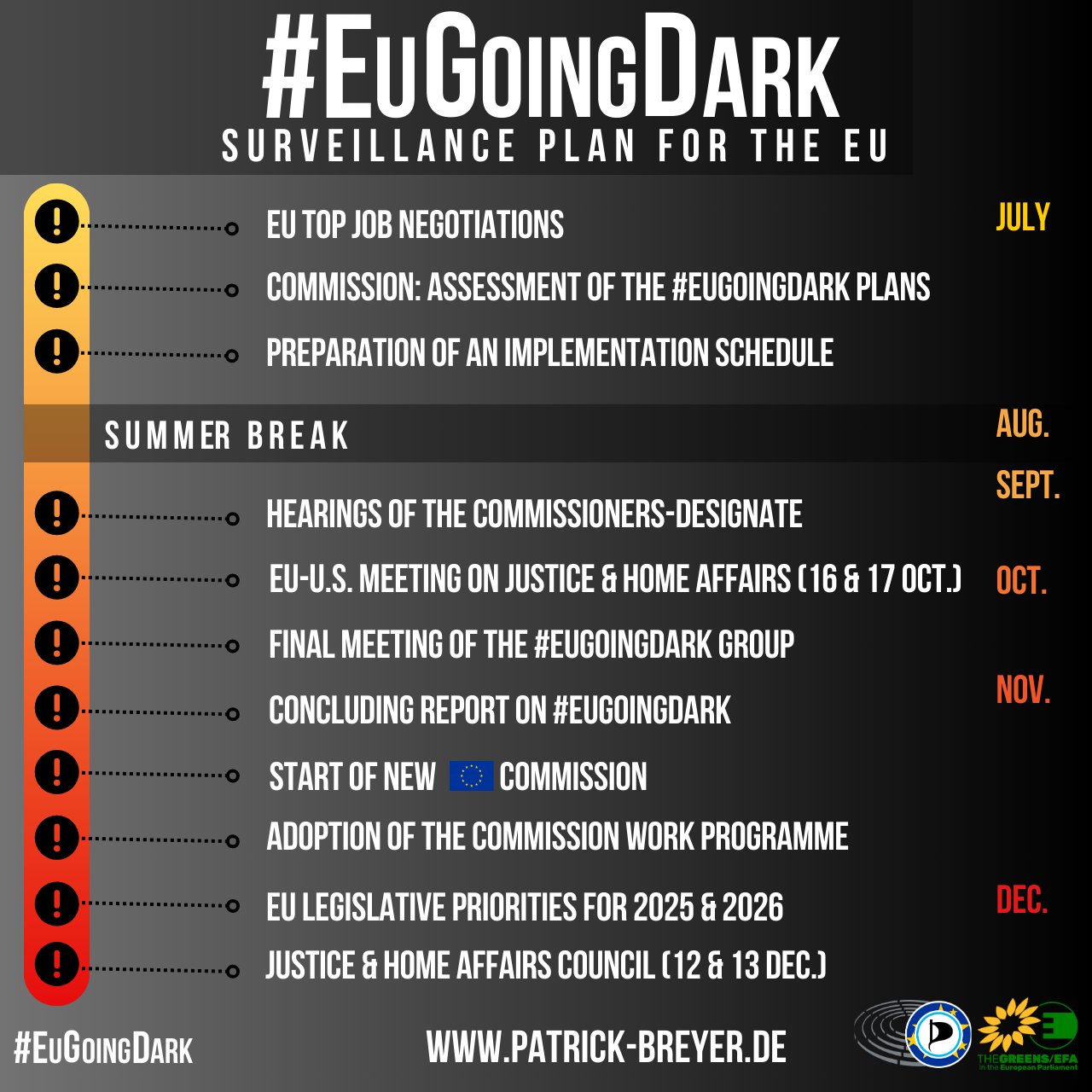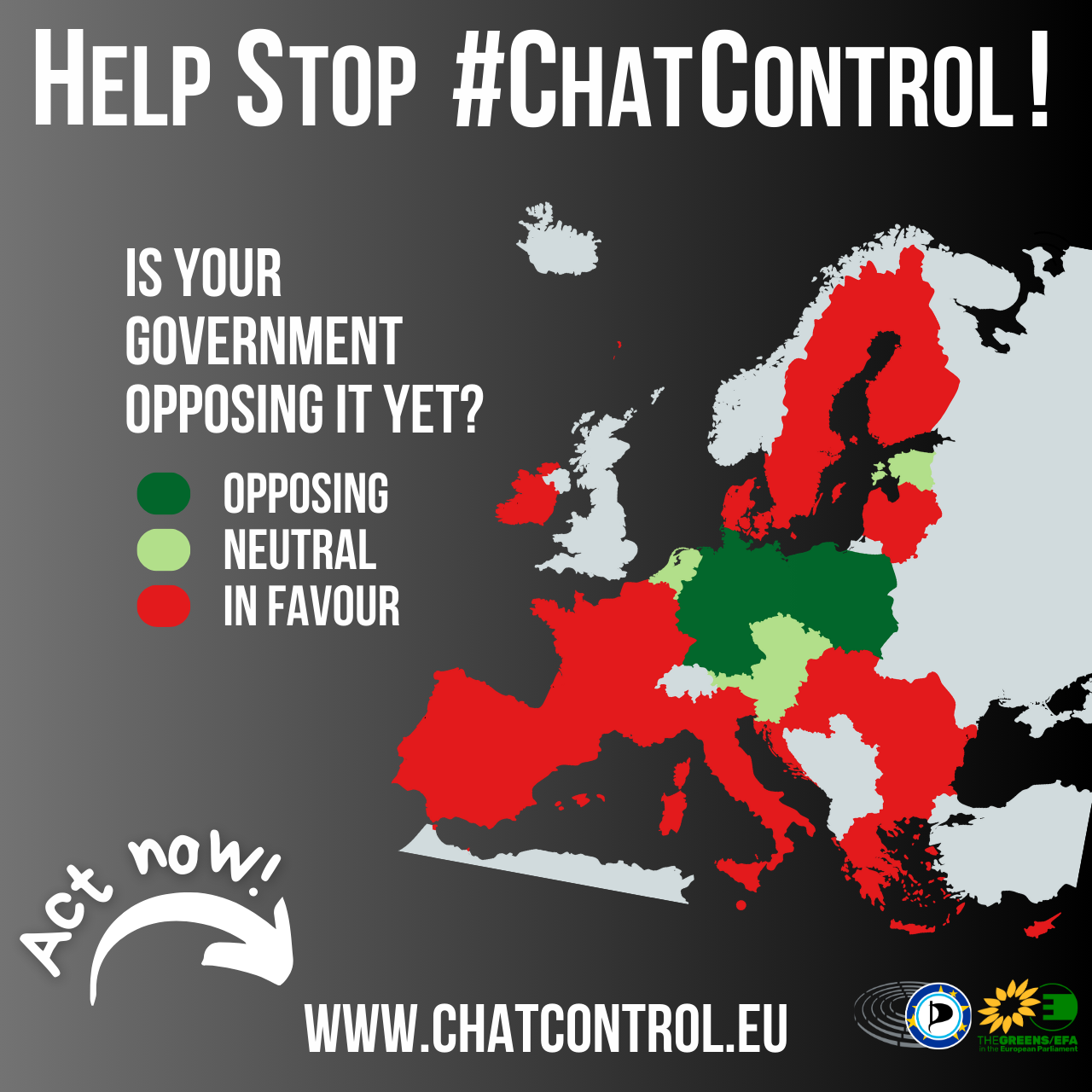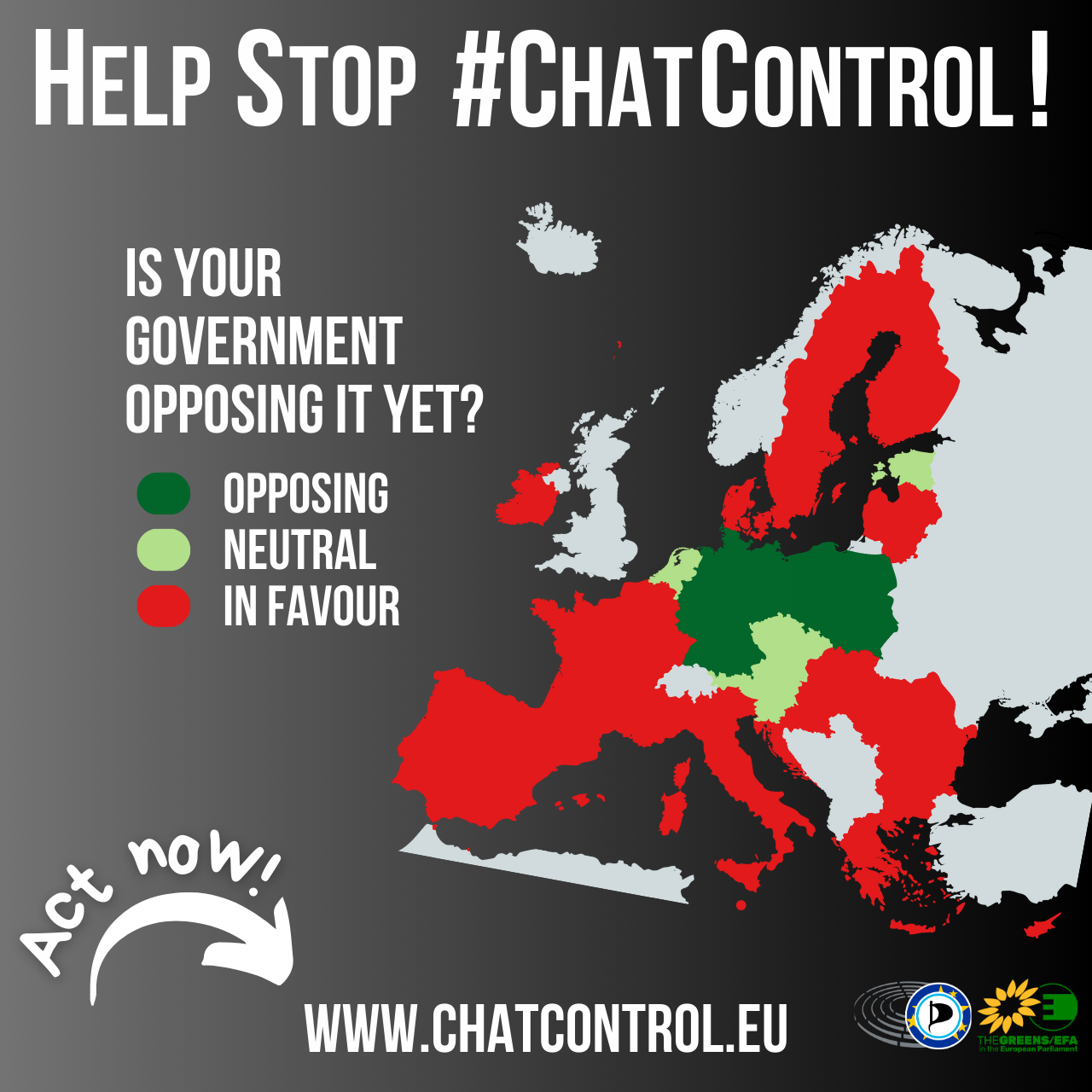Johansson in favour of new “legislation for data retention”
The EU’s new security commissioner Johansson yesterday in the European Parliament’s Civil Liberties Committee surprisingly spoke out in favour of new “legislation for data retention”, subject to court decisions expected soon. The same day EU governments could not produce evidence that retaining details on everybody’s communications significantly increases the crime clearance rate.
“The EU must do better in targeting criminals and sufficiently funding law enforcement rather than wildly start to gather information on the private lives of all 500 million Europeans”, comments Patrick Breyer MEP (Pirate Party, Greens/EFA group). “Ms Johansson, respect our privacy! This metadata makes us naked, can be used to blackmail even prominent officials and make predictions on our future movements. It is irresponsible to gather such information and expose it to risks of abuse and data theft.”
“Blanket and indiscriminate telecommunications data retention is the most privacy invasive instrument and possibly the least popular surveillance measure of all. Data Retention laws mandate the indiscriminate collection of sensitive information about electronic contacts (including business contacts), movements and the private lives (e.g. contacts with physicians, lawyers, workers councils, psychologists, helplines, etc.) of 500 million Europeans that are not suspected of any wrongdoing. Such invasive surveillance of the entire population disrupts confidential communications, such as from whistle-blowers. Crime statistics reveal that there is not a single EU Member State where blanket and indiscriminate telecommunications data retention has had a statistically significant impact on crime or crime clearance. Blanket and indiscriminate telecommunications data retention legislation has repeatedly been ruled to violate fundamental rights by the European Court of Justice, pointing out that it ‘applies even to persons for whom there is no evidence capable of suggesting that their conduct might have a link, even an indirect or remote one, with serious criminal offences’.”
Johansson was also criticised by Renew MEP Moritz Körner on Twitter who suggested that the Member States should instead fund Europol und Eurojust appropriately.




Comments